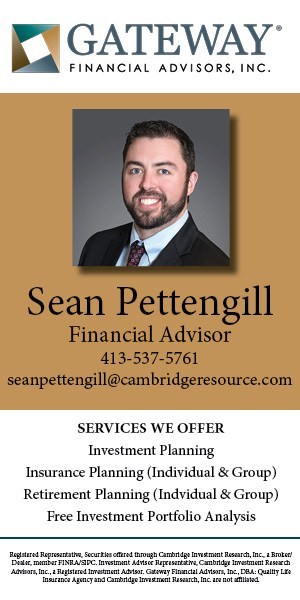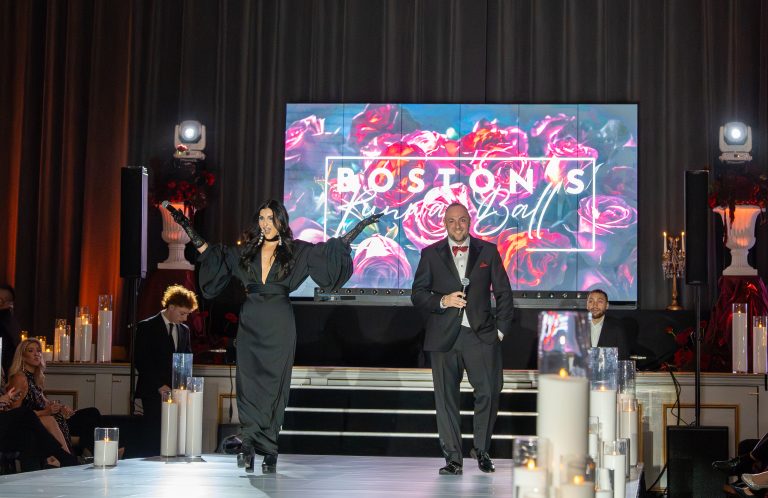It has been projected, by some accounts, as the fastest growing sport in the US. So for Harvard Business School alum, Aditya Khilnani, where else would he launch his first padel facility than right here in Boston?

IN the heart of Hyde Park, a sporting revolution is underway, one shot at a time. Sensa Padel, Boston’s first padel facility, opened its doors in May, introducing the city to one of the fastest-growing sports in the world. With four state-of-the-art indoor courts boasting 40-foot-plus ceilings – the highest in the country—Sensa Padel is not just opening a sports facility; it’s cultivating a community and pioneering a movement capturing the hearts of newcomers and seasoned sports enthusiasts alike. Plus, those ceilings are a game-changer for players of all levels. More on that later.
The Birth of Sensa Padel: A Passion Project
For Aditya Khilnani, founder and CEO of Sensa Padel, the journey began with a desire to merge his lifelong passion for sports with his entrepreneurial spirit. “I was at a stage in my life when I was looking to mirror my passion for sport and building a company,” Khilnani explains. With a background in college tennis and a career that included founding an e-commerce furniture company, Khilnani saw an opportunity in the rapidly growing world of padel.
“During the pandemic, I spent time back home in the UK, where I was playing a lot more padel,” Khilnani recalls. “I loved it because I was playing competitive games with my college tennis buddies and fun recreational games with people who had never played racket sports before.”
This experience sparked a realization: the mission of Sensa Padel would not just be about attracting seasoned tennis players to padel, but about introducing the joy of racket sports to a whole new audience. “The mission of the company is not to get tennis guys into padel, which is easy. It’s getting people who’ve never picked up a racket in their life to enjoy sport,” Khilnani emphasizes.

What Sets Padel Apart
Padel, often described as a mix between tennis and squash, is played on an enclosed court about one-third the size of a tennis court. Players use solid, stringless rackets to hit a ball over a net, with the surrounding walls in play. This unique aspect adds a thrilling dimension to the game, allowing for creative shots and extended rallies. The high ceilings give those rallies an added dynamic that cannot be replicated.
There’s no denying the popularity of pickleball in 2024. If you’re reading this, you’re likely wondering, “What is this padel craze all about?” The team at Sensa Padel makes it clear that there is plenty of room in the hearts of racket sports lovers for both sports. Bharat Chopra, GM of Product & Growth at Sensa Padel, offers a colorful analogy: “I like to say that pickleball is like NASCAR, and padel is like F1. In NASCAR, the best athletes in the world basically turn left, turn left, turn left, turn left. In padel, like F1, they are flying in every single direction. You miss a ball in padel, and all of a sudden, you’re turning around. It’s bouncing off one wall, your partner misses it, now it bounces off another wall, and you run back towards it and get it.”
This dynamic nature of padel contributes to its rapid growth and appeal. As Khilnani puts it, “Padel is easy to play, hard to master. The entry-level for padel is easier than tennis, but there’s no upper ceiling of how good you can get.”

The Padel Experience: A Player’s Perspective
The appeal of padel extends beyond its unique gameplay. Anna Stewart, a Boston resident who recently tried padel for the first time with Sensa, shares her experience: “I had such an incredible experience trying Padel for the first time with the Sensa team. The game itself is so much fun and a sneaky good workout. The Sensa team took all of the guesswork out of learning a new sport and made it the absolute best time!”
Stewart’s experience highlights two key aspects of padel that Sensa emphasizes: the enjoyment factor and the accessibility for newcomers. The “sneaky good workout” she mentions aligns with Sensa’s mission to promote both fun and fitness through padel.
At the heart of Sensa Padel’s mission is building a vibrant, inclusive community. Hugo Fetsco, GM of the Hyde Park facility, has been instrumental in fostering this environment. “What’s excited me the most so far is the community who’s attracted to this sport,” Fetsco shares. “We have a wide range of people coming through the door, from the international community who have played in Spain or South America to those who generally play platform tennis or belong to country clubs in the area.”
The facility offers a range of programs designed to cater to players of all levels, from beginners to advanced. “We’re constantly hosting events, about three nights a week,” Khilnani explains. “There’s a lot of passion that goes in, from the preparation to the follow-ups, making sure people have a good experience, training our coaches.”
Fetsco emphasizes the high-touch, personalized approach they take: “We’re making sure everyone feels like a VIP customer, whether it’s their first time or their sixth time through the door.” This attention to detail extends to every aspect of the experience, from remembering names and faces to stepping in to complete a foursome when needed.
Jorge Gomez Mantellini is from Venezuela. Now, he’s finding a new community at Sensa Padel. “You have no idea how much we were waiting to play padel in Boston. I could tell you all about how great the courts are, or how incredibly fun the sport is, but the true heart of Sensa is the community, including the amazing staff,” he says.
His friend, Jaime Moreno, agrees. “Playing padel at Sensa has been enjoyable since its opening weekend this summer,” the Spaniard explained. “The gradual growth of the padel community is a testament to the Sensa team’s efforts in organizing a variety of activities such as open plays, tournaments, and classes.”
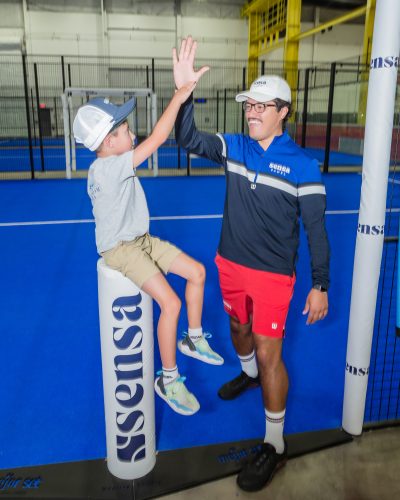
Padel: The New Community Builder
The community-building aspect of padel is one of its most compelling features, as highlighted by Colleen Evans, a padel enthusiast with a long history in the tennis world. Evans shares, “As someone who’s been immersed in the tennis world for decades, both as a player and working behind the scenes at major professional events, I never thought another racquet sport could capture my heart quite like tennis did. But then I discovered Padel, and it’s been a game-changer in more ways than one.”
Evans emphasizes the unique social dynamics of padel: “Unlike tennis, which can sometimes feel isolating or intimidating for newcomers, Padel has this magical way of bringing people together. The smaller court size and the fact that it’s always played as doubles create an environment that’s inherently more social and interactive. I’ve seen complete strangers become fast friends over the course of a single Padel session.”
This social aspect is something Sensa Padel has integrated into its core philosophy. The company’s focus on community events, open play sessions, and creating a welcoming environment for players of all levels aligns perfectly with the inherent social nature of the sport.
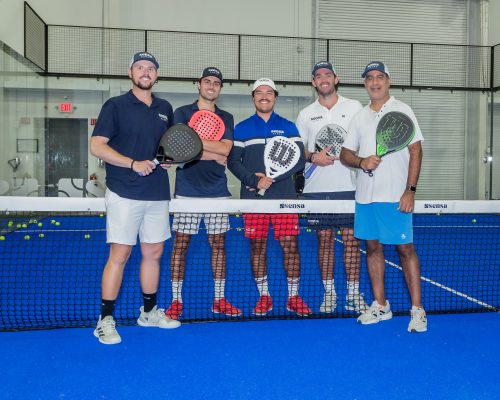
The Padel Pilgrim: Alex Lapa’s Journey
Perhaps no one exemplifies the magnetic pull of padel, and the community Sensa Padel has built better than Alex Lapa. Lapa, a tennis player his entire life, discovered padel while spending time in Argentina. “I picked up padel and absolutely fell in love with the sport,” he recalls. “I used that as a way to meet a lot more local people in the city that I wouldn’t have otherwise, and just became addicted to the sport.”
When Lapa returned to his home in Portland, Maine, he found himself needing access to padel courts – until he discovered Sensa Padel online. “I made it a point to drive the two and a half hours to get to Hyde Park for the opening weekend,” he says. “The facilities are amazing. The courts are fantastic.”
Despite the long drive, Lapa has become a regular at Sensa Padel, making the trip whenever possible. “Every chance I get – if I’m going down to Boston for the Sox, or if I was down there for a concert the other day, or if I’m on my way to Connecticut to see family, or even just if I have time on a weekend – I’ll just make it a point to talk to these guys and try and get a game going.”
What keeps Lapa returning isn’t just the quality of the facilities or his love for the sport – it’s the community he’s found there. “I’ve definitely been able to find a lot of that similar community,” he says. “I found a lot of people that grew up in Spain or Mexico or South America – guys who have been playing their whole life… We just immediately swapped numbers started a WhatsApp group together.”
Lapa’s experience underscores the power of padel to bring people together and create lasting connections. It’s a testament to the sport and the environment Sensa Padel has cultivated in its Boston facility.

The Growth Strategy: Boston and Beyond
While the Boston facility marks Sensa Padel’s debut, it’s just the beginning of their ambitious plans. The company is already launching in Nashville and has Austin in its sights, with plans to open three to five additional clubs by 2025.
“Our current growth plan is getting these three locations really right and then ramping up again in 2025,” Khilnani shares. “The medium-term strategy is to build a national brand of padel clubs with great customer service, great programming, and consistency between the locations.”
The choice of locations is strategic, focusing on cities with international populations and existing racket sports cultures. Boston’s diverse community and strong platform tennis presence was an ideal starting point.
The potential for padel’s growth in the US is significant. According to Deloitte estimates cited by Khilnani, there could be 25,000 to 30,000 padel courts with 8 to 10 million players in the US by 2029. This rapid growth is part of what Khilnani sees as a “renaissance in racket sports.”
“For the past few generations, it’s been the same racket sports – mostly tennis and squash, which are largely associated with country clubs and restricted access,” Khilnani explains. “We now have a wave of padel and pickleball that are much more accessible and fun for all ages, skill levels, and generations.”
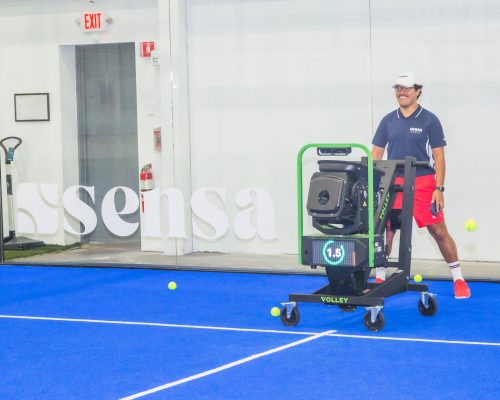
Why Padel? Why Now?
For those wondering why they should give padel a try, Chopra offers a compelling guarantee: “If people with medium to high-level racket sports experience come, I guarantee they’re going to laugh more in one hour of padel than they will in one month of tennis.”
Khilnani adds another perspective for potential players: “A lot of our customers also like feeling like they’re early on the trends. People who play padel in the US today, they know this product is amazing, they know it’s going to be big, they can’t believe it’s so small.”
This sense of being part of something new and exciting is a significant draw for many players. As Lapa puts it, “It’s an incredible community of people around it, like it’s truly just come to play, hang out after, people grab beers or coffee or whatever. And you know, it’s something I could just see myself playing for a long time.”
This aligns with Sensa Padel’s vision of its facilities as more than just sports venues. Its facilities are designed to be community hubs, places where people can connect, socialize, and build relationships. The company’s commitment to hosting regular events, tournaments, and social gatherings is a testament to this vision.

Padeling Into the Future
As Sensa Padel continues to grow and introduce more people to the sport, they’re not just building a business but fostering a community and pioneering a movement. Whether you’re a seasoned racket sports player looking for a new challenge or someone who’s never picked up a racket, Sensa Padel invites you to be part of this exciting journey.
In the words of Khilnani, “We’re beyond excited to get new people onto the courts so they can experience the sport firsthand and fall in love with the game like so many others!” As padel continues to grow in popularity across the United States, Sensa Padel’s Boston facility stands as a pioneer, offering locals the chance to be part of this exciting sporting revolution.
The enthusiasm of players, combined with the vision and dedication of the Sensa Padel team, highlights how padel is poised for significant growth in the US. As more people discover the unique blend of accessibility, social interaction, and physical challenge that padel offers, it seems likely that Sensa Padel’s ambitious expansion plans are just the beginning of a broader padel movement across the country.
In a world where social connection and physical activity are more important than ever, padel, with its community-building potential and broad appeal, maybe the sport of the future. And with companies like Sensa Padel leading the charge, that future is arriving in cities across America, one court at a time. As Lapa’s two-and-a-half-hour journeys from Portland to Boston demonstrate, padel enthusiasts are willing to go the extra mile for this sport. It’s this passion and dedication that Sensa Padel is tapping into, and that may propel padel to become America’s next great sporting obsession.











